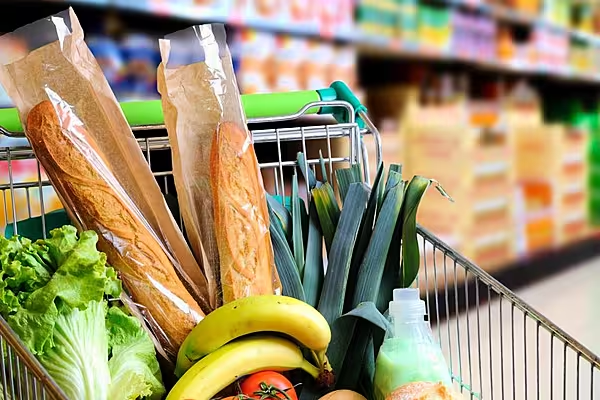Ibec groups have agreed that agri-food must be a top priority for the Irish Government in the forthcoming Brexit negotiations, according to statements issued this week by Meat Industry Ireland (MII), Food Drink Ireland (FDI) and the Irish Dairy Industries Association (IDIA).
Other concerns outlined by each group include:
Maintaining Business Certainty Is Crucial, Says MII
Meat Industry Ireland (MII) has highlighted the importance of maintaining business certainty during Brexit negotiations.
Cormac Healy, Director of MII said, "56% of our meat exports accounting for in excess of €2 billion annually are sold into the UK market. A positive outcome to negotiations is crucial. A hard Brexit will result in massive trade disruption and job losses whereas a sensible outcome, aimed at maintaining trading continuity, will be beneficial to both Ireland and the UK."
"As the starting gun is fired on the commencement of Brexit negotiations, the Irish Government must make sure that the EU-27 (member states) negotiating mandate ensures that: The future trading relations with the UK are high on the priority list; Trade negotiations must start at the earliest opportunity and run in tandem with the exit negotiations; and A realistic transition period leading to a negotiated free trade agreement with the UK must be delivered to avoid damaging 'cliff-edge' scenarios and to ensure business certainty in the interim." He added.
Healy also highlighted that amongst the EU-27 partners, Ireland is uniquely vulnerable when it comes agri-food trade with the UK.
"This must be prioritised by Government. Ibec and MII are working with all of our members to ensure that they are adequately equipped to deal with the immediate challenges of Brexit and plan for future trading eventualities", concluded Healy.
FDI: Discussions 'Must Be Commenced Early'
Discussions on the future EU-UK relationship must be commenced early, said Food Drink Ireland (FDI).
Paul Kelly, director of FDI, said, "The agri-food sector exports €4.1 billion of food and drink to the UK and accounts for 43,000 Irish jobs, Agri-food is the Irish sector most exposed to trade disruption, and the Irish Government must do all within its control to ensure minimum impact to the free flow of goods."
"Discussions on the future EU-UK relationship must be commenced early in the negotiating process and must ensure: Free and unfettered access to the UK market for Irish business. An agreement that takes account of the special case of the all-island economy, ensuring that the highly integrated supply chains can continue to operate with free movement of goods and services, transitional arrangements, of sufficient length, for businesses to plan and prepare for any new free trade agreement."
"Ibec and FDI will continue advising our members to examine how Brexit might impact their business, and we are providing contingency planning support," concluded Kelly.
The Success Of Nutrition In The Sports, Wellness, And Infant Sector Under Threat, Says IDIA
The Irish Dairy Industries Association (IDIA), said that Brexit 'poses and clear and present threat to the success of 'its nutrition in the sports, wellness, and infant sector.'
Conor Mulvihill, director, IDIA said, "Irish dairy is the fastest growing agri-food industry in the EU and provides much needed jobs right across rural Ireland. It is a global leader in specialised nutrition in the sports, wellness, and infant sector. Brexit, however, poses a clear and present threat to this success."
"Disruption to trade between Ireland and the UK has already begun, due to currency pressures. Already this year, 10,000 tones less of cheddar have been delivered to the UK by Irish companies, compared to this time last year."
The IDIA also suggested safeguarding dairy supply chains and the flow of dairy products into the future.
It also said the Brexit negotiations must: 'Deliver free and unfettered access to the UK market for Ireland; take account of the special case of the all-island economy, and ensure that highly integrated supply chains can continue to operate with free movement of goods and services. Include transitional arrangements, of sufficient length for businesses to plan and prepare for any new free trade agreement and also to ensure the issue of customs procedures is dealt with as part of the first phase of Article 50 negotiations.'
"The IDIA also warned against the danger of no new trade deal and a default to WTO trade terms. WTO tariffs are set at a punitive €1,671 a tonne for cheddar cheese. This would amount to an additional €130 million minimum a year in costs for Irish exporting companies. A WTO tariff cliff edge would be disastrous for the industry, as the UK represents the only viable market for Irish cheddar."
Mulvihill concluded, “Supply chains between Ireland and the UK are deeply integrated, with strong north/south and east/west ties on these islands, which have been built up over generations. The imposition of a hard border would fracture the milk pool here, and would cause untold problems for our hard fought international reputation as a global leader in this sector. It is essential that our Government acts now to maintain certainty and clarity over regulations, rules of origin, and food safety for Irish dairy products."
© 2017 - Checkout Magazine by Donna Ahern









